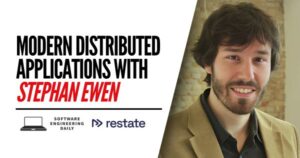WebAssembly with Lin Clark
Podcast: Play in new window | Download
Subscribe: RSS


JavaScript has been the exclusive language of the web browser for the last 20 years. Whether you use Chrome, Firefox, Internet Explorer, or Safari, your browser interprets and executes code in a virtual machine–and that virtual machine only runs JavaScript. Unfortunately, JavaScript is not ideal for every task we want to perform in the browser.
Think about the use cases where you need to use software outside of the browser: video editing, music production, 3D art, video games. These applications require a high degree of performance that is hard to get from raw JavaScript.
WebAssembly was created to get better performance on the web. WebAssembly allows code from other languages to be compiled and run in the browser. With WebAssembly, languages such as C, C++, and Rust can be used to achieve major performance gains. WebAssembly is still under development, and eventually more programming languages will be accessible as well.
Lin Clark is an engineer on the Mozilla Developer Relations team, and has been working closely on the WebAssembly project. She is the author of a detailed series of illustrated blog posts that explain how WebAssembly works. In this episode, we discuss how WebAssembly came to be, its advantages over a web driven purely by Javascript, what is possible with WebAssembly, and its engineering implementation.
Transcript
Transcript provided by We Edit Podcasts. Software Engineering Daily listeners can go to weeditpodcasts.com/sed to get 20% off the first two months of audio editing and transcription services. Thanks to We Edit Podcasts for partnering with SE Daily. Please click here to view this show’s transcript.














